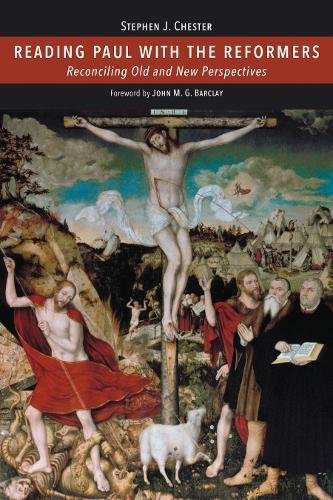Ben: Full disclosure at the outset, I’m not persuaded by some of the major tenants of either Luther or Calvin about some of these things, but rather am a child of the Wesleys and the English revival of the 18th century. Nevertheless, I’ve spent a good deal of time in Luther and Calvin both at GCTS, and then I did Calvin and Luther with T.H.L. Parker at Durham when I was there. So’ I’m familiar with a good deal of the primary sources. I say this because some of my questions may come from a different angle than you might expect. But let’s start where you start— by discussing Luther’s dialogue with Erasmus over the clarity and nature of Scripture and the role of tradition. Erasmus freely admits Scripture has its obscurities and therefore one needs allegory at times to make sense of it, whereas Luther insists on the perspicuity of Scripture throughout, but this seems an odd claim when he calls James ‘a right strawy epistle’ and has serious doubts about Revelation being in the canon. What do you think is really at issue in Luther’s beef with Erasmus over Scripture and tradition? Is it just that he wants to reject the role of Catholic tradition so he can have his own say about Scripture?
Stephen: I do not know all that much about Luther and the book of Revelation but I have looked in some detail at his relationship with the epistle of James. Here it is important to note the fuller context of Luther’s designation of James as ‘an epistle of straw.’ He says that, “St. James’ epistle is really an epistle of straw … for it has nothing of the nature of the gospel about it” (LW 35, 362). The problem for Luther is that an authentically apostolic text should proclaim the gospel, but James barely mentions Christ, concentrating instead on ethical instruction. Luther thinks that James give us law when it should be preaching gospel and Luther sees James as standing in tension with Paul concerning justification. Luther therefore regards James as a less important text and wishes to place it at the end of the canon, but he does not wish to excise it. He quotes James with approval and preaches from James on more than one occasion. He still regards it as part of God’s word. What Luther does with James is consistent with his hermeneutic of law and gospel and makes sense if one approaches the interpretation of Scripture with that hermeneutic.
I don’t think, therefore, that Luther is simply arbitrary in his debate with Erasmus when he asserts the perspicuity of Scripture. He is less wise than Erasmus in the sense that Erasmus foresees much more clearly the endless divisions over the interpretation of Scripture that have in fact transpired in the subsequent history of Protestantism. But he is perhaps also more courageous and honest in that Erasmus is at key points unwilling to admit the theological consequences of his own immense exegetical scholarship when it beings him into tension with Catholic tradition.
It is important to note, however, that Luther is very far from opposing tradition just because it is tradition. He will insist very sharply in his debate with Erasmus that the church cannot err in its biblical interpretation. Luther is very traditional on this point and it is his adherence to such a traditional perspective that, ironically, makes him so very radical. Once he has concluded that the Roman church has indeed very seriously erred in its interpretation of Scripture then the inevitable consequence is that Luther can longer regard it as the true church. The true church is instead a remnant chosen by grace. Luther will insist throughout his career that he is the true Catholic, not his opponents.













